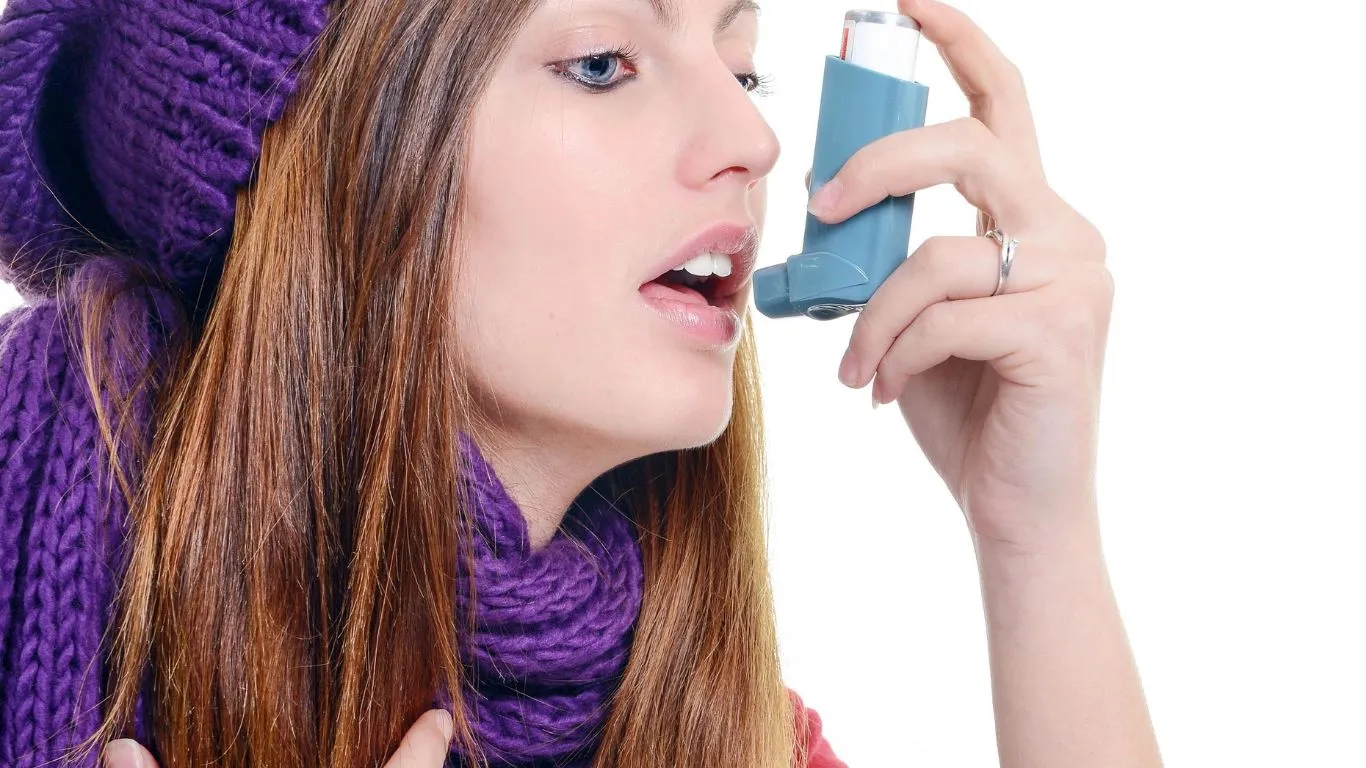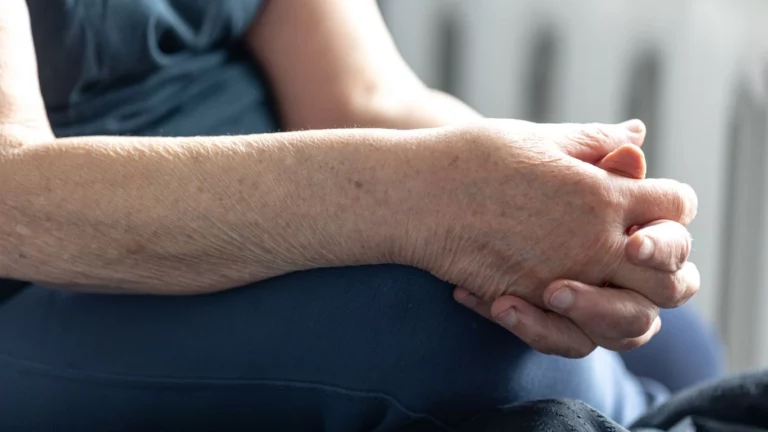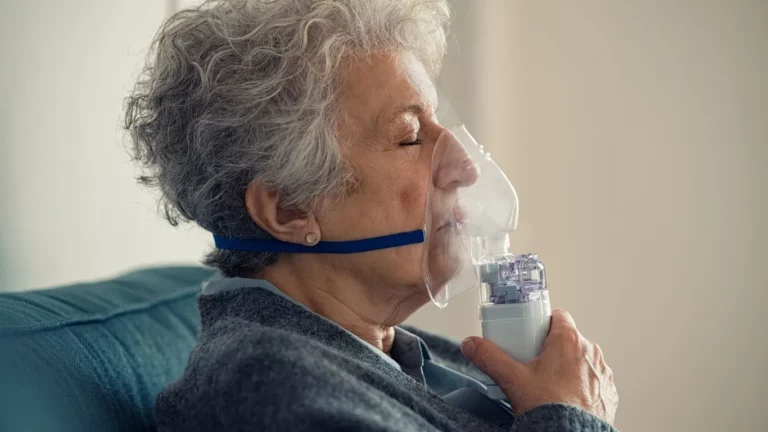Can Asthma Cause Shortness of Breath After Eating? Understanding the Link
Hey there! If you’ve ever wondered, can asthma cause shortness of breath after eating, you’re definitely not alone. As a pulmonary nurse practitioner, I’ve come across many patients who experience this puzzling symptom. It’s a question that often pops up in clinic visits, especially when someone notices breathing difficulties not just during exercise or at night, but right after mealtime. From my experience, this connection isn’t as straightforward as it sounds, but it’s very real for some folks.
Shortness of breath, medically known as dyspnea, is a classic symptom of asthma. Usually, it’s triggered by allergens, cold air, or exercise. But when it happens after eating, it can catch you off guard and leave you wondering what’s going on. Let’s unpack this together in a way that feels less like a lecture and more like a chat over coffee.
Understanding Asthma and Its Symptoms

Asthma is a chronic respiratory condition where your airways become inflamed and narrow, making it harder to breathe. This inflammation can lead to wheezing, coughing, chest tightness, and that unmistakable shortness of breath. The tricky part is that asthma symptoms can vary wildly from person to person and can be triggered by a bunch of different factors.
One thing I always tell my patients is that asthma isn’t just a lung problem—it’s an interaction of your environment, immune system, and sometimes even what’s happening inside your digestive system. So, if you’re noticing shortness of breath right after eating, it’s worth digging deeper.
Why Breathing Can Get Tough After Meals
Now, you might be thinking: “Is it really asthma, or something else?” Good question. While asthma can cause shortness of breath anytime, there are specific reasons why eating might trigger or worsen symptoms:
- Food Allergies and Asthma: For some people, certain foods can trigger allergic reactions that worsen asthma symptoms. Think about common allergens like nuts, shellfish, or dairy.
- Gastroesophageal Reflux Disease (GERD): GERD is a frequent culprit. When stomach acid backs up into the esophagus, it can irritate your airways and make breathing harder. This condition often overlaps with asthma and can lead to post-meal breathing trouble.
- Physical Pressure on the Lungs: Eating large meals can cause your stomach to expand, pushing up against the diaphragm and lungs, which may make breathing feel more laborious, especially if your asthma is already sensitive.
My Experience: Seeing Patients with Post-Meal Shortness of Breath

Working with patients over the years, I’ve seen this symptom come up more than once. One particular case sticks with me: a middle-aged woman with well-controlled asthma who started noticing that about 30 minutes after dinner, she felt her chest tighten and struggled to catch her breath. After a thorough review, we found she had mild GERD that flared up after meals, which was irritating her airways.
We adjusted her asthma management and introduced strategies to manage reflux—like eating smaller meals and avoiding trigger foods—and her post-eating breathlessness improved significantly. This was a classic example of how interconnected asthma is with other bodily systems.
When Should You Worry?
Shortness of breath after eating isn’t always a sign of something serious, but it’s definitely something you want to pay attention to, especially if it’s persistent or getting worse. Here’s when you should consider seeking medical advice:
- If the breathlessness happens every time you eat or after specific foods.
- If you experience additional symptoms like wheezing, coughing, or chest pain.
- If you notice any signs of allergic reactions such as hives, swelling, or difficulty swallowing.
- If over-the-counter antacids or asthma inhalers aren’t helping as they used to.
Getting a thorough evaluation can help pinpoint whether your asthma is the main cause or if something else, like GERD or a food allergy, needs attention.
Digging Deeper: How Asthma and Digestion Interact

One thing I always emphasize to patients is that your body doesn’t work in isolated compartments. Asthma affecting your lungs can absolutely be influenced by what’s going on in your digestive system—and vice versa. When it comes to shortness of breath after eating, understanding this connection can be a game-changer.
For example, let’s talk about GERD—or acid reflux—which is surprisingly common in people with asthma. When stomach acid creeps back up into the esophagus, it can irritate the lining and even reach your airways. This irritation causes inflammation and tightness in your lungs, which can mimic or worsen asthma symptoms. From my clinical experience, managing reflux often makes a huge difference in patients who complain about breathing issues after meals.
Asthma Medications and Eating
Something many don’t realize is that some asthma medications themselves can affect digestion or even contribute to symptoms after eating. For instance, oral steroids—sometimes prescribed during asthma flare-ups—can increase the risk of acid reflux. Inhaled corticosteroids, while generally safe, can occasionally cause throat irritation that feels worse after eating.
I’ve had patients tell me they feel more “breathless” after meals when they’re using certain inhalers. Usually, this isn’t the inhaler causing the issue directly but may relate to timing or improper inhaler technique. It’s one of those subtle things you pick up on only after chatting extensively with patients and watching their patterns over time.
Common Triggers After Eating That Could Affect Asthma

When we think about asthma and post-meal shortness of breath, it’s important to highlight some common food-related triggers I often see in practice. Here are a few culprits that can sneakily worsen asthma symptoms:
- High-Fat or Fried Foods: These can slow digestion, increasing the chance of reflux and discomfort.
- Spicy Foods: They may aggravate the esophagus or even stimulate the nerves that cause airway constriction.
- Dairy Products: Though the evidence is mixed, many patients report increased mucus production and congestion after dairy, which can worsen asthma symptoms.
- Alcohol and Caffeine: Both can relax the lower esophageal sphincter, making reflux more likely.
- Food Allergens: Obvious but important—nuts, shellfish, eggs, or other personal allergens can trigger not just allergic reactions but asthma attacks.
In my practice, I encourage patients to keep a simple food and symptom diary. It’s amazing how often they discover patterns they didn’t notice before, which can lead to better control of both asthma and digestion-related symptoms.
The Role of Portion Size and Meal Timing
Another piece of the puzzle is how much and when you eat. Big, heavy meals can literally press against your diaphragm and lungs, making breathing feel more difficult if you already have sensitive airways. Plus, eating late at night or lying down soon after a meal often worsens reflux, leading to post-meal breathing troubles.
I often tell my patients:
- Try eating smaller, more frequent meals instead of three large ones.
- Allow at least 2-3 hours between your last meal and bedtime.
- Stay upright after eating—take a gentle walk or just sit comfortably rather than lying flat.
These lifestyle tweaks might sound simple, but they can drastically reduce symptoms for those struggling with post-meal shortness of breath.
When Asthma Isn’t the Only Player: Exploring Other Causes

While asthma can definitely cause shortness of breath after eating, it’s not the only thing that might be at play. There are other medical issues that sometimes mimic asthma or contribute alongside it:
- Food Allergies or Intolerances: These can cause swelling in the throat or trigger asthma-like symptoms.
- Hiatal Hernia: This is when part of the stomach pushes up through the diaphragm, increasing reflux risk.
- Heart Conditions: Sometimes, heart problems can cause breathlessness that feels similar to asthma.
- Anxiety and Stress: Believe it or not, anxiety can cause rapid, shallow breathing and tightness after eating, especially if someone is worried about their asthma.
Because of these overlapping issues, a thorough medical evaluation is essential. I always recommend patients work closely with their healthcare provider to rule out other causes and tailor treatment accordingly.
Practical Tips to Manage Shortness of Breath After Eating

By now, you’ve probably gathered that shortness of breath after eating can be a tricky symptom influenced by many factors. From my years working as a pulmonary nurse practitioner, one thing I can confidently say is that managing this issue often means tackling it from several angles. Here are some practical, down-to-earth tips that I share with my patients to help keep those breathlessness episodes in check after meals.
1. Keep Your Asthma Well-Controlled
This may seem obvious, but it’s worth stating: the better your baseline asthma control, the less likely you are to have unexpected breathing problems after eating. Stick to your prescribed inhaler routine, avoid known triggers, and don’t skip follow-up visits with your healthcare provider. When asthma is stable, many patients notice that unusual symptoms, like post-meal breathlessness, improve.
2. Monitor Your Diet and Identify Triggers
Food plays a bigger role in asthma symptoms than many people realize. As I mentioned before, keeping a food and symptom diary can help identify if certain meals or ingredients consistently cause trouble. Once you pinpoint these, try avoiding or limiting them. For some patients, simply cutting back on spicy or fatty foods made a world of difference.
3. Adjust Meal Size and Timing
One simple but effective adjustment is to eat smaller portions more frequently, instead of heavy, large meals that put pressure on your diaphragm and stomach. Also, try not to eat too close to bedtime. Give yourself at least a couple of hours before lying down. This can minimize reflux and reduce airway irritation.
4. Manage GERD Symptoms
If acid reflux is a known or suspected player in your symptoms, tackling it head-on is key. Lifestyle changes like avoiding caffeine, alcohol, and tobacco can help. Over-the-counter antacids or medications your doctor prescribes can also provide relief. In my experience, treating reflux aggressively often helps lessen asthma-related breathing problems after meals.
5. Practice Good Inhaler Technique
It might sound basic, but I can’t stress enough how many people don’t use their inhalers correctly. Proper inhaler use ensures medication gets where it’s needed—your lungs—and reduces throat irritation that might worsen after eating. If you’re unsure, ask your healthcare provider to watch your technique or use a spacer device.
When to Seek Further Help

If you’ve tried some of these strategies and still struggle with shortness of breath after meals, it’s time to dig a bit deeper. Persistent or worsening symptoms warrant a comprehensive evaluation, which may include:
- Pulmonary function tests: These help assess how well your lungs are working.
- Allergy testing: To identify any hidden food or environmental triggers.
- GI studies: Tests for acid reflux or other digestive conditions that might be contributing.
- Referral to specialists: Sometimes pulmonologists, allergists, or gastroenterologists can provide additional insight and care.
Remember, your health is a team effort. Don’t hesitate to reach out to your care providers and share your full symptom story. Often, these collaborative efforts uncover the root cause and lead to better symptom control.
My Final Thoughts on Asthma and Post-Meal Shortness of Breath
Dealing with asthma is already a challenge, and adding the frustration of breathlessness after eating can feel overwhelming. But from my perspective, there’s a lot of hope. With the right approach—careful symptom tracking, attention to diet and lifestyle, and working closely with your healthcare team—you can regain control and enjoy your meals without fear of struggling to breathe.
One thing I love about this work is helping patients connect the dots in their own bodies. Sometimes it’s a subtle change in eating habits, other times it’s medication adjustments or managing reflux better. Whatever it is, personalized care makes all the difference.
References
Disclaimer
This article is intended for informational purposes only and does not replace professional medical advice. If you experience persistent or severe symptoms of asthma or shortness of breath, especially after eating, please consult your healthcare provider for personalized evaluation and treatment.

Bianca Nala is a compassionate Nurse Practitioner with a strong background in primary and respiratory care. As a health writer for Healthusias.com, she combines her clinical expertise with a talent for clear, relatable storytelling to help readers better understand their health. Bianca focuses on topics like asthma, COPD, chronic cough, and overall lung health, aiming to simplify complex medical topics without losing accuracy. Whether she’s treating patients or writing articles, Bianca is driven by a single goal: making quality healthcare knowledge accessible to everyone.







